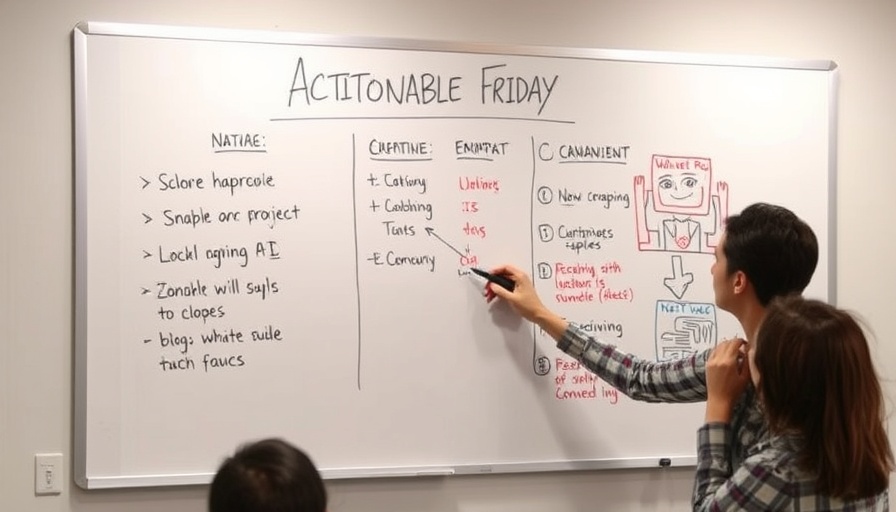
Navigating the World of Actionable AI
In a world where artificial intelligence (AI) is transforming the landscape of digital marketing, understanding how to utilize actionable AI can propel businesses toward efficiency and innovation. Britney Muller, in her recent Whiteboard Friday session, emphasizes the power of AI as a supportive tool rather than a replacement for human ingenuity. This distinction is vital as companies navigate the intricate integration of AI technologies into their workflows.
AI as Assistive Technology
One of the most significant points that Britney emphasizes is the role of AI as an assistive technology. It is not designed to take over tasks entirely but rather to enhance productivity by alleviating some of the burdens on human decision-making. Many professionals, especially in SEO and marketing, eagerly incorporate AI into their systems, sometimes with grand expectations. However, it’s crucial to recognize AI's limitations. Users can expect to achieve only around 60-70% of their objectives through AI, making it essential to set realistic goals.
Breaking Down Tasks for Success
Many teams fall into the trap of over-generalizing their tasks for AI. Britney warns against treating AI like a magical solution that can instantly solve complex problems. Instead, it’s important to boil down ambitious ideas into manageable, bite-sized tasks. By doing so, teams can leverage AI more effectively and avoid the frustration that comes from unmet expectations. This approach allows for a better understanding of what AI can bring to the table and prepares marketers to communicate these insights to stakeholders, educating them on the practical applications of AI.
Managing Expectations and Educating Stakeholders
Educating stakeholders about the capabilities and limitations of AI can open new avenues for collaboration and innovation. When upper management pushes for quick AI solutions, it can create pressure that leads to frustration among team members. However, by managing expectations and discussing the realistic contributions of AI, professionals can foster a more supportive work environment, encouraging experimentation and learning.
Real-world Applications of Generative AI
To further illustrate actionable AI, Britney highlights various applications of Generative AI that marketers and businesses can tap into. From content generation to predictive analytics, the possibilities are extensive. Marketers are increasingly harnessing AI tools to analyze consumer data, automate repetitive tasks, and generate insights that inform strategic decisions. These applications not only streamline workflows but also enhance the overall quality of outcomes through data-driven insights.
Conclusion: Embrace Actionable AI
As the digital marketing landscape evolves, understanding actionable AI is key to staying ahead. By viewing AI as a valuable assistive technology and breaking down tasks into manageable components, professionals can effectively integrate AI into their strategic frameworks. Embrace the journey of AI, manage expectations with stakeholders, and unlock the transformative potential that AI has to offer.
 Add Row
Add Row  Add
Add 




Write A Comment